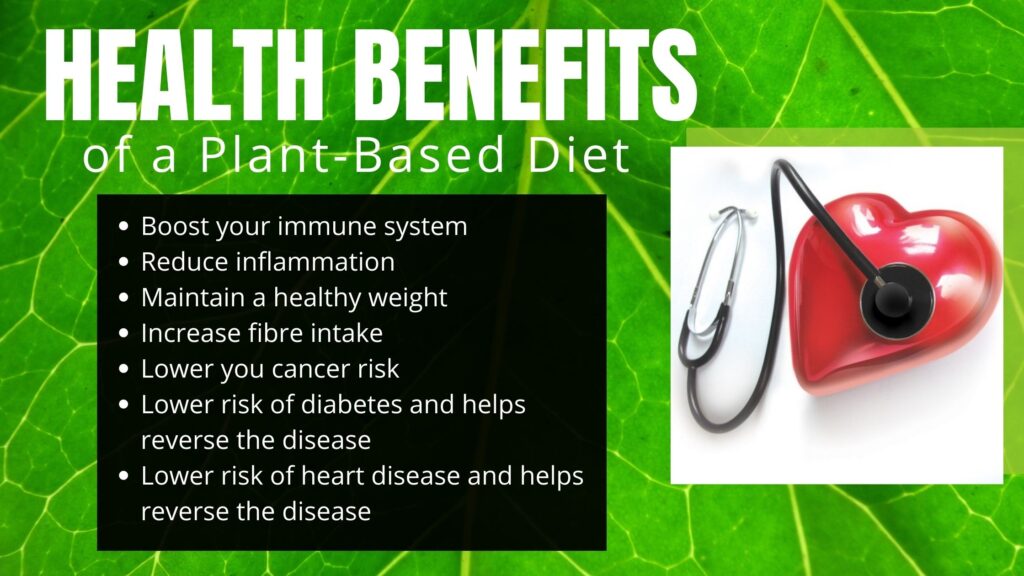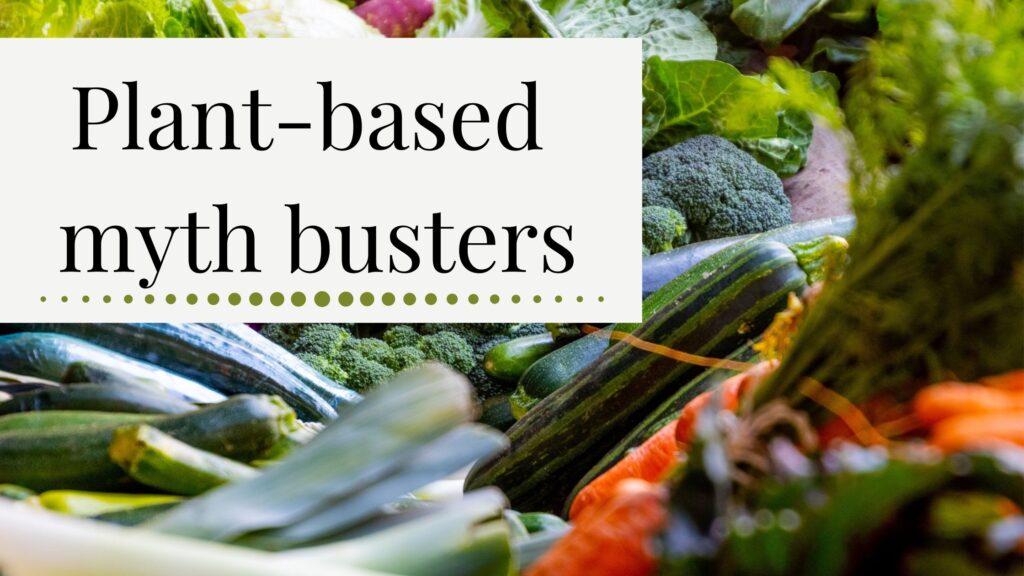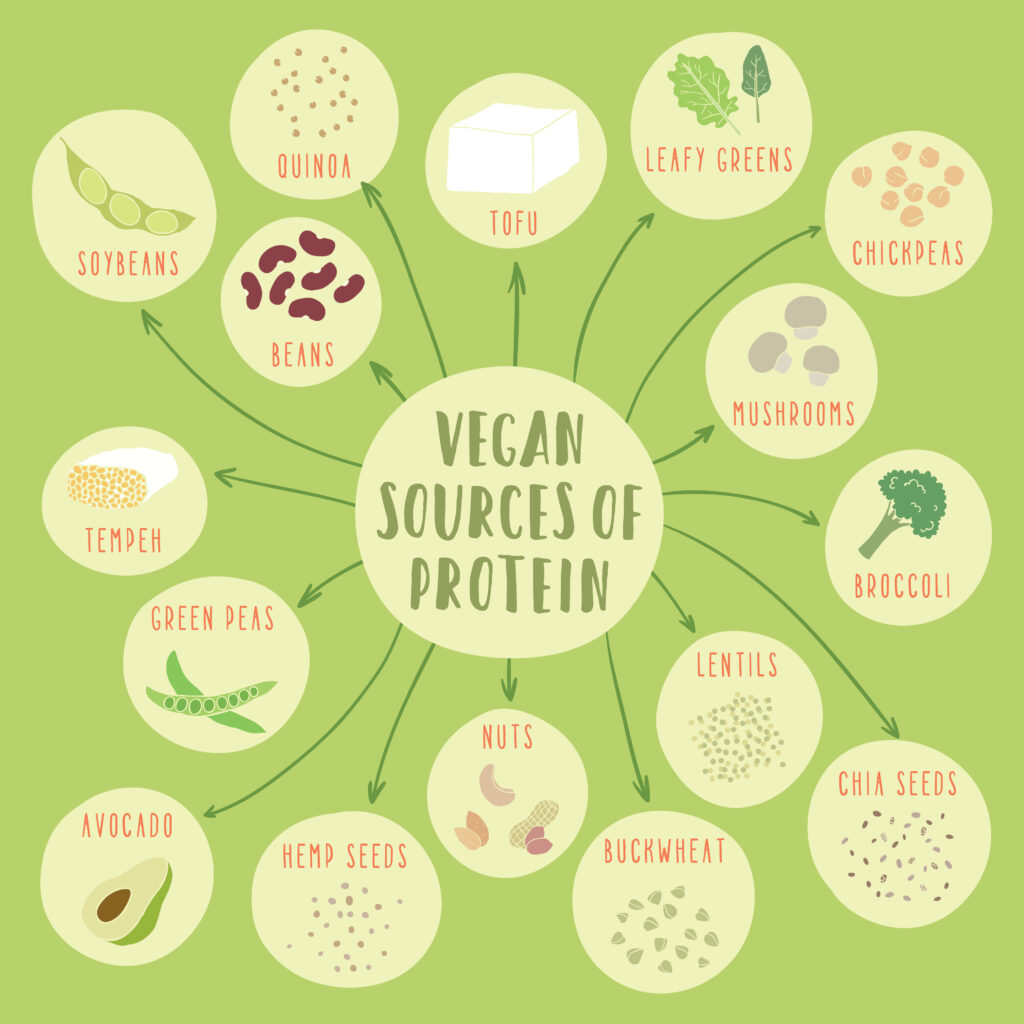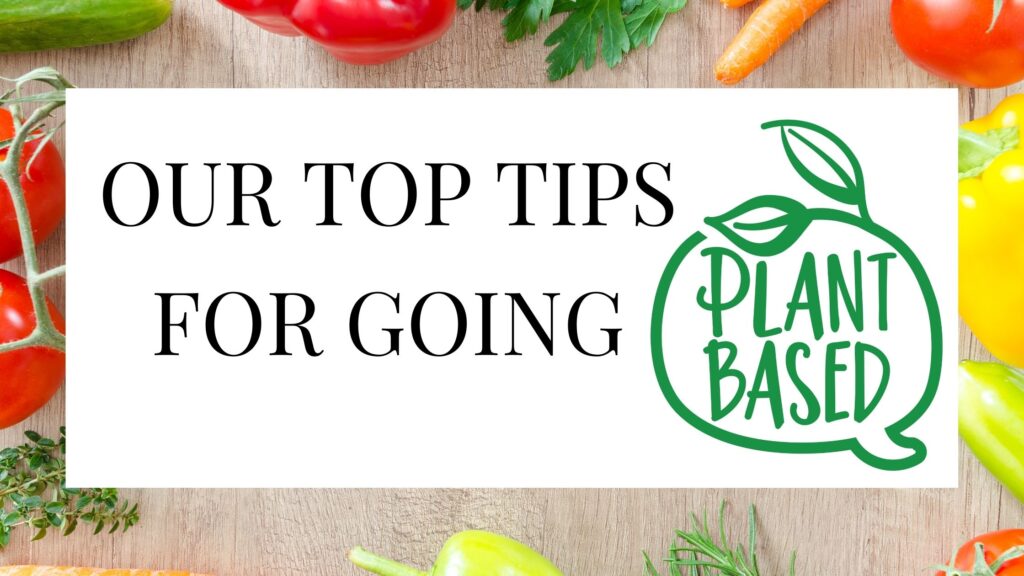On this page we aim to share information with you about sustainable eating, explain the difference between plant-based and vegan; the health benefits of a plant-based diet; we bust 7 myths associated with plant-based diets; share our top tips on going plant-based and our recommended films to watch.
Aside from where we explain the difference between plant-based and vegan, we have only used the term plant-based to keep things simple, but the principles apply to vegan diets as well.
Sustainable eating

Increasingly more and more of us are making decisions with environmental sustainability in our minds.
Thankfully the message is finally well and truly out there that our food production methods have a huge negative impact on the planet.
With the world population projected to reach 9.9 billion by 2050, an increase of more than 25% from the current 2020 population of 7.8 billion, continuing with the same already unsustainable farming methods to produce meat and dairy to feed a growing population is just not an option.
In the UK alone, it is estimated that eating a completely plant-based diet, needs just one third of the fertile land, fresh water and energy of the typical British ‘meat and dairy’ based diet. With meat and dairy production also being the leading contributor to greenhouse emissions.
Whilst there are many things we can do to help reduce our carbon footprint, the most effective and instant thing we can do as individuals, is to change our diet, eliminating or reducing meat and dairy and adopting a plant-based diet.
What is the difference between plant-based and vegan?
You may be surprised to know that Veganism isn’t a new thing or a fad driven by the increasing number of celebrities endorsing a vegan lifestyle. It has actually been around since 1944 when The Vegan Society was formed. Whilst there has been a huge rise in the number of people adopting a vegan lifestyle, it is still a relatively new concept to many people.
The Vegan Society define Veganism as:
“Veganism is a philosophy and way of living which seeks to exclude—as far as is possible and practicable—all forms of exploitation of, and cruelty to, animals for food, clothing or any other purpose; and by extension, promotes the development and use of animal-free alternatives for the benefit of animals, humans and the environment. In dietary terms it denotes the practice of dispensing with all products derived wholly or partly from animals.”
Anyone following the full definition above will avoid all animal-derived materials, such as gelatin, which is a protein from bones, cartilage, tendons and skin of animals and is often used in cosmetics, cakes and sweets. Any products tested on animals and places that use animals for entertainment. These are often defined as ‘ethical vegans’.
Some people only follow the diet aspect of veganism for health, environmental or other reasons and refer to themselves as ‘dietary vegans’ or ‘plant-based’.
Plant-based simply means that the diet is mostly made up from plants, such as fruits, vegetables, seeds, nuts, oils, wholegrains, legumes and beans. Small animal products may still be eaten such as eggs, dairy, small amounts of meat/fish. There are a number of different types of plant-based diets as there is a lot of flexibility in such a diet. You can read more about those here.
health benefits
Adopting a plant-based diet has an array of benefits for your health and the environment. Research supports that regularly consuming foods high in plant proteins versus animal protein can help prevent and reduce a number of chronic conditions including cancer, type 2 diabetes, heart disease and lower blood pressure and cholesterol.
These are not wild claims. The science and data has been there for many years. You may ask, why, if that is the case, we only know about this now? In answering this, you have to appreciate the scale of the meat, dairy and pharmaceutical industries and the rapid changes in our society over the last 100 years. These multi-billion pound industries have immense power to influence Government policies and throw huge amounts of money at clever marketing campaigns. This combined with the change in farming practices, which made meat affordable for everyone and the rise of fast-food has meant that eating meat quickly became the ‘norm’. The majority of us will have been raised eating meat and therefore have certain beliefs we acquired in the learning process as well as these being deep rooted in social norms.
It is only in the past couple of years thanks to tireless campaigners, scientists and researchers, it is now accepted that plant-based diets are healthy diets and can have benefits over a carnivorous diet. The British Dietetic Association supports that well planned plant-based diets can support healthy living at every age and life-stage.
Most nutrients are abundantly available in plant-based diets, but if you are avoiding all or minimising your consumption of animal-derived foods there are a few nutrients that you need to pay attention to and The British Dietetic Association and Vegan Society Eatwell Guide have some excellent information on this.
It is easier than ever to eat a plant-based diet as more and more plant-based options appear on the supermarket shelves. Word of caution here though. Just as with none plant-based foods, clever marketing strategies will have you believe all these new meat and dairy substitutes on the market are ‘healthy’ simply because they have a ‘vegan’ or ‘plant-based’ label on them. Always check the ingredients and remember they are still processed, look for those with more natural ingredients and less processing.
7 Myths
1. A plant-based diet is the same as a vegan diet
Wrong! Plant-based means the diet is predominantly made up from plants, such as fruits, vegetables, seeds, nuts, oils, wholegrains, legumes and beans. Small animal products may still be eaten such as eggs, dairy, a small amount of meat/fish. Vegan diets eliminate all animal products.
2. I need dairy and milk to get enough protein
Wrong! It is proven that protein needs have been grossly overrated and in fact most of us whether eating plant-based or animal products, consume more protein than we actually need or can process.
Protein is found in all foods. If you are eating a balanced diet you will get enough protein from a plant-based diet. Incidentally, the animals consumed for protein are fed on a plant-based protein diet.
Take a look at the Vegan Eatwell Guide for more information on nutritional requirements and how to get them from eating a vegan or predominantly plant-based diet.
3. Eating plant-based is expensive
Wrong! If you are a regular meat eater, a plant-based diet can actually be cheaper, especially if you avoid the processed meat and cheese alternatives.
4. All plant-based foods are healthy
Wrong! Just as with any diet, it is about getting the variety and nutrients. Someone could be eating a plant-based diet and mostly eat chips and processed meat substitutes, just as someone eating a meat and dairy diet, could mostly eat chips and meat. Neither are getting a balanced healthy diet.
5. Plant-based foods are not filling
Wrong! Plant proteins are very filling. They keep you fuller for longer than animal proteins because in addition to the staying power of plant protein, they are also full of fibre. A plant-based diet is not made up of salads alone! It is based on fruit and starchy foods like potatoes, beans, whole grains and vegetables.
6. A plant-based diet is not suitable for children
Wrong! Yes it is. But parents should avoid processed fake meats. Parents might be mindful that children get enough calcium, protein, zinc, iodine and iron from food and supplement with B12. Visit The British Dietetic Association and Vegan Society for more information about nutrition.
7. You will get weak and frail on a plant-based diet
Wrong! There are hugely successful plant-based and vegan athletes, just a few include Fiona Oakes, a world record marathon runner; Lizzie Deignan, world champion cyclist; Lewis Hamilton, multiple Formula 1 world champion; Steph Davis, successful climber; Rich Roll, ultraman and ironman athlete; Patrick Baboumian, world record holder strongman and Venus Williams, regarded as one of the all time greats of women’s tennis. We could go on but will stop there, you get the idea!
Top tips
1. Go at your own pace
Some people manage to go vegan overnight and that might be the right approach for you but it isn’t for everybody. Like any other lifestyle change, going vegan or plant-based not only takes some getting used to, it takes time to determine what will work best for you.
Making small changes to your everyday meals is one of the easiest ways to increase the amount of plant-based foods in your diet. You could start by removing meat or dairy one day a week and the following week increase to two days a week and so on. Or you could try changing one meal at a time, having plant-based breakfasts during your first week, adding a plant-based lunch during week two and so on. Perhaps changing one product at a time by swapping cow’s milk for a nut or soya milk or butter for coconut oil or plant-based margarine.
2. Keep an open mind and try new things
Your taste buds will most likely be going on a new journey, embrace it, leave your comfort zone and try new things! Finding plant-based recipes for all tastes and different cuisines is easier than ever. A quick internet search will bring up many recipes from the beginner cook to the expert. Enjoy trying out favourite recipes with a plant-based spin on them. Above all, remember this is not a ‘special’ diet. Plant-based eating is the norm in many other countries and a lot of the recipes are inspired on those dishes. Check out some of our recipes here.
3. Plan meals

A little time spent planning some meals for the week will help when it comes to the food shopping. It can be a little overwhelming when you do the first shop and realise just how many aisles are full of animal products, having a specific shopping list will really help. Once you learn what foods are staple in a plant-based diet, food shopping becomes a joy and your trolley is full of colour and variety.
4. Remind yourself why you are doing this
It can help to keep reminding yourself of the reasons behind you choosing to try a plant-based or vegan diet. Joining a group on social media, reading educational books or watching informative documentaries about the subject can really help. There are documentaries approaching the topic from all different angles, some focus on animal welfare, others on the health, fitness and environmental benefits of a plant-based diet. Check out our top viewing recommendations below.
It is not uncommon for people to start out on this journey for a particular reason, notice the benefits physically and mentally, educate themselves on the wider benefits and naturally move towards a vegan diet.
5. Don’t panic if you notice changes in your body
As we are all very different, each of our bodies will react differently when switching to a vegan or plant-based diet. People going straight to a vegan diet from an animal based diet may notice the most dramatic changes as your body goes into a detox mode.
You might experience headaches and changes in your energy levels. This is totally normal and will pass so don’t panic! Just as if you were detoxing from caffeine, your body needs to go through that process to get better and healthier.
If you have a particular health condition and are worried about how suddenly changing your diet could impact on this, consult with your GP first.
6. Don’t be harsh on yourself
People make this change for all different reasons and once on the journey, it can be life changing. You may question your lifestyle up to now, particularly if your motivation for change is animal welfare. This is normal and is part of learning and growing. You may have moments of weakness or want to eat vegan but find that too challenging, in which case accept a plant-based diet is more suitable for you right now and in time you might feel able to work on eliminating all animal based products. Perhaps you find it wasn’t that difficult to ditch the meat but cheese you just can’t be without. Remember that is absolutely fine, it is your life and your personal choice.
What to watch
There are many great films around on the topic of plant-based and vegan diets and lifestyle. They all offer something slightly different, whether that be focused on animal welfare, environmental sustainability or health and wellbeing. There really is something to suit everyone. A quick internet search will bring up a list of films but we have put together our top recommendations below with a brief synopsis to help you decide what to watch next. These are not in any particular order!
1. What the Health
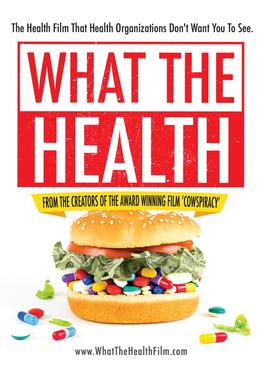
2017 documentary explores the health benefits of a plant-based diet and exposes the reluctance of health and nutrition organisations to point out the negative effects of consuming animal products.
Watch on Netflix or pay to watch online here.
2. Cowspiracy
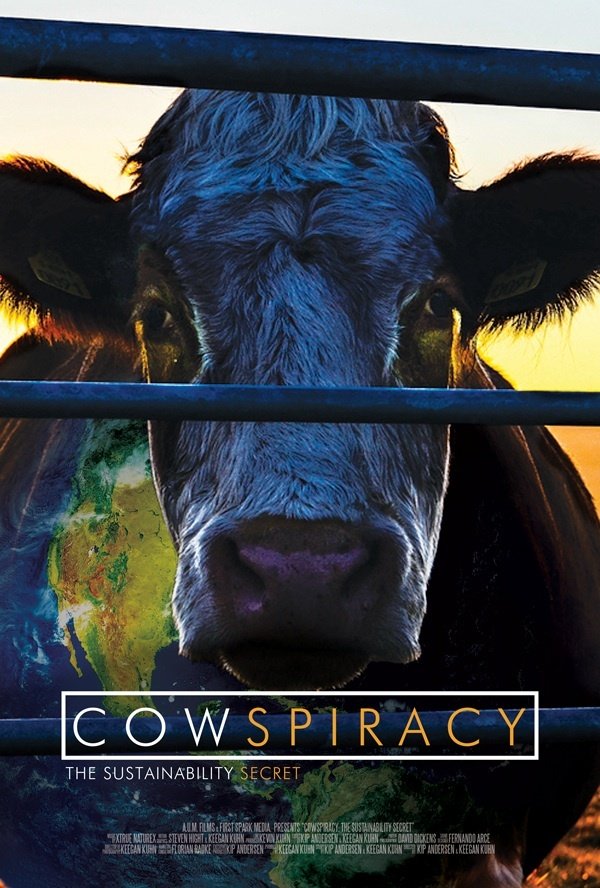
2014 documentary revealing the absolutely devastating environmental impact large-scale factory farming has on our planet, and offers a path to global sustainability for a growing population
Watch on Netflix or pay to watch online here.
3. The Game Changers
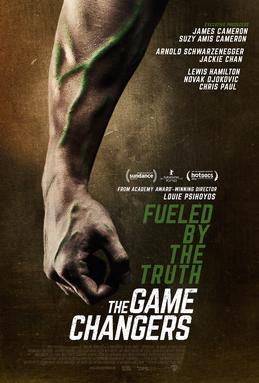
2018 film, presented by James Cameron, Arnold Schwarzenegger, Jackie Chan, Lewis Hamilton, Novak Djokovic and Chris Paul. Discusses the role of meat and plant-based eating in the search for the optimal diet for human performance and health.
Watch on Netflix or pay to watch online here.
4. Dominion
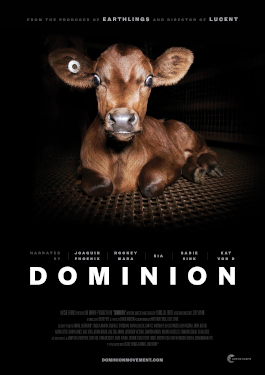
2018 documentary using hidden cameras and aerial drones, “Dominion” takes the animal cruelty found in the food system under the spotlight for all to see.
Watch for free online here.
5. Forks over Knives
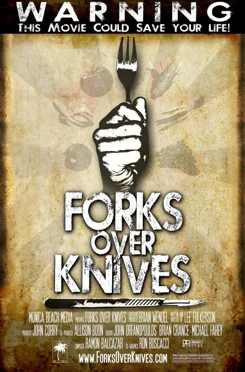
2011 documentary discussing food as medicine. The film follows everyday Americans with chronic conditions as they seek to reduce their dependence on medications and learn to use a whole-food, plant-based diet to regain control over their health and their lives.
Watch on Amazon Prime or iTunes.
6. Hogwood
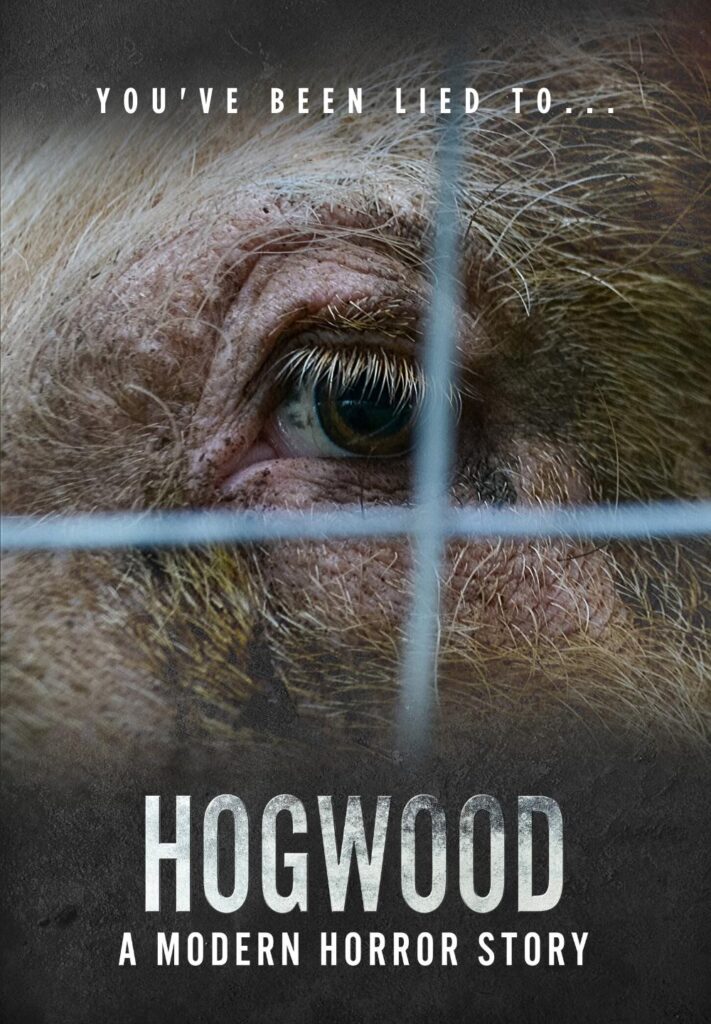
‘Best British Short’ and the ‘Wild Animal Award’, at the 2020 British Documentary Film Festival. Undercover investigations in some of Britain’s biggest factory farms.
Watch on Amazon Prime or online here.
7. Live and Let Live
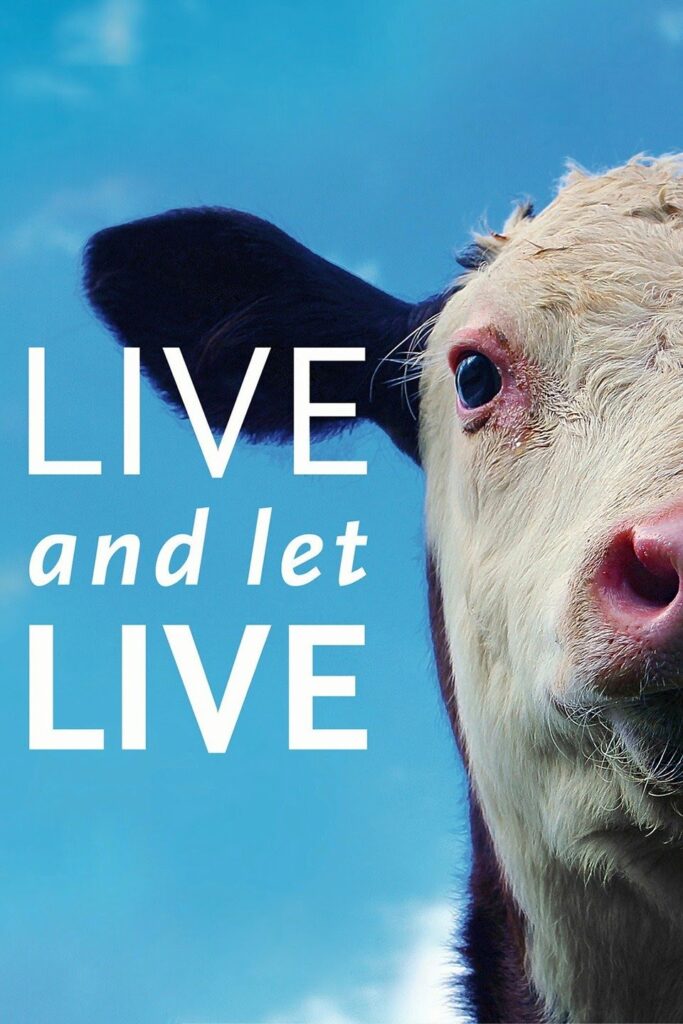
2013 documentary examining our relationship with animals, the history of veganism and the ethical, environmental and health reasons that move people to go vegan.
Watch on Amazon Prime.
8. A Prayer for Compassion
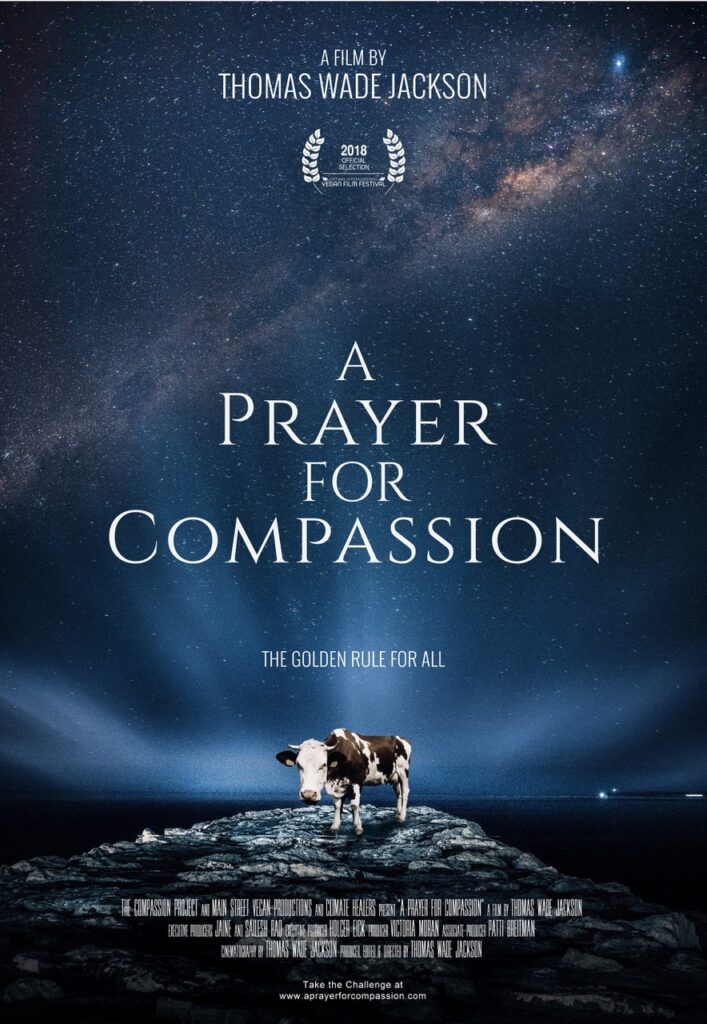
2019 documentary looking at the spirituality involved in living a plant-based, cruelty-free lifestyle. Featuring people from dozens of faiths.
Watch on Amazon Prime or pay to watch online here.
9. 73 Cows
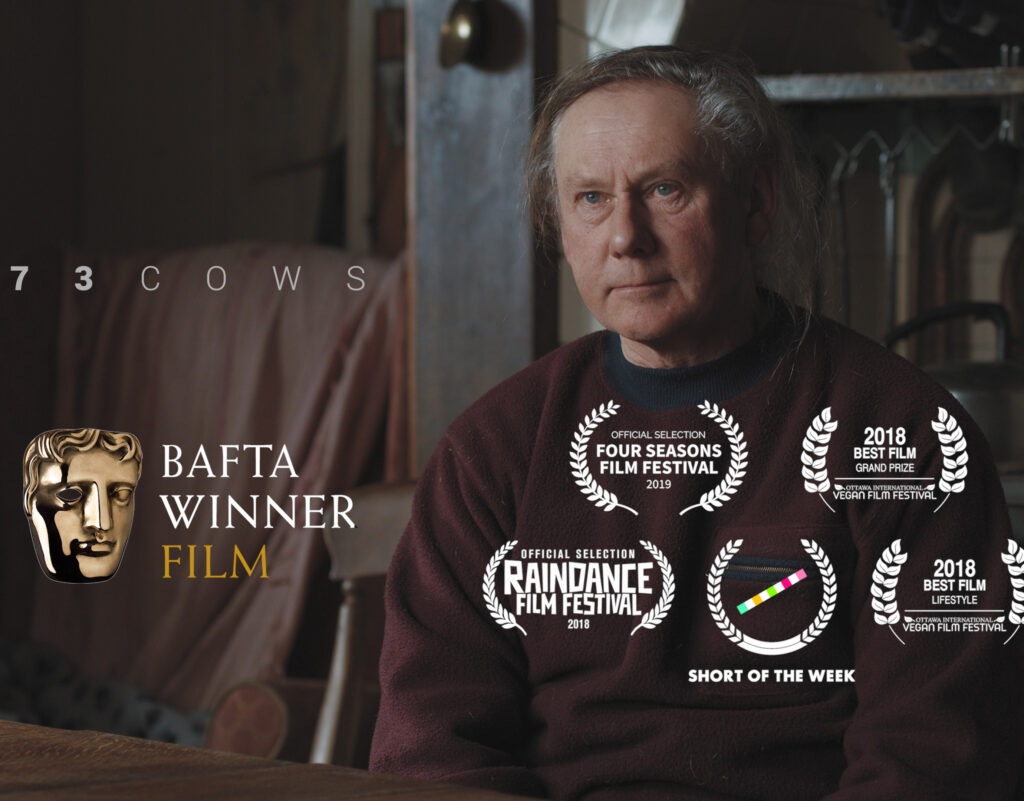
2019 BAFTA British Short Film winner about the first farmer in the UK (Ashbourne, Derbyshire) to trade beef farming for sustainable organic vegan farming.
Watch for free online here.
10. Earthlings
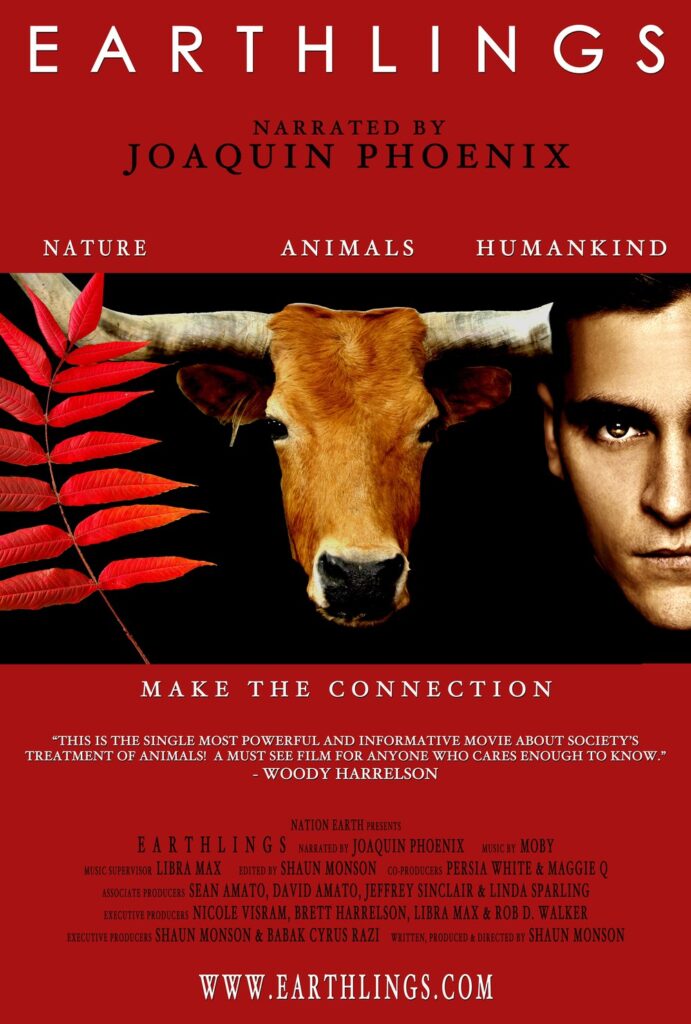
2005 documentary about the day-to-day practices of the largest industries in the world, all of which rely entirely on animals for profit.
Watch for free online here.
